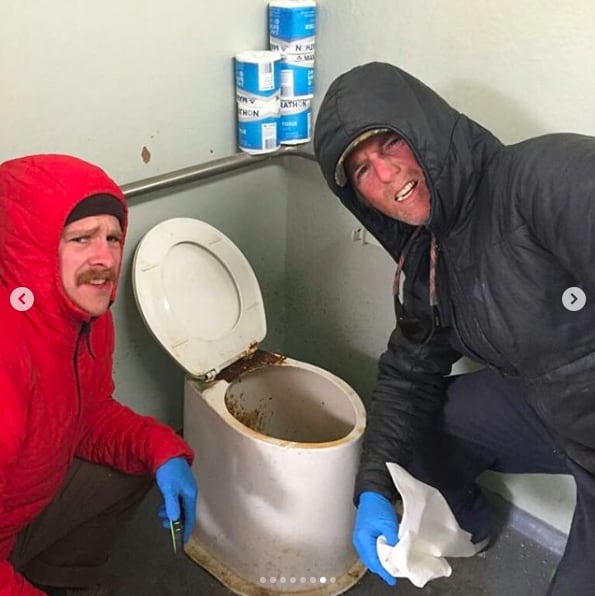With the government shutdown set to enter its third week, and with the possibility of it lasting for months more, the most tangible evidence of its impact appears to be the most gastronomical.
People are having a difficult time dispensing with their poop.
At national parks across the country, human excrement is piling up, bathrooms have become unbreathable heaps of bodily fluids, and park officials are noticing visitors relieving themselves in places where they should not be.
The shit storm—for lack of a more apt phrase—is a byproduct of a quirk in how the government has approached this shutdown versus those prior. Instead of closing the national parks, the Trump administration has kept them open but with little to no staff there to help manage the premises. With sanitation workers not on the job, human toxicity has been left unattended. And unlike other outcomes of the shutdown—from disrupted scientific research, to furloughed federal workers, to government programs operating on shoestring staff and budgets—this one has broken through the news clutter.
At the Point Reyes National Seashore in California, the buildup of human waste was so bad that the park had to be closed for health hazards. The East Bay Times reported that “pit toilets had become ‘incapacitated.’” John Dell’Osso, chief of interpretation for the park, told the San Francisco Chronicle that “human waste has been found on the exterior of the toilets.”
At locations in the Poconos, the bathrooms have been locked but visitors have still kept going. A local news outlet quoted one visitor posing the conundrum in fairly philosophical terms: "If you gotta go, you gotta go. If you can't use a bathroom, what other options do you have?"
At Yosemite National Park, local resident Dakota Snider called the situation heartbreaking. “There is more trash and human waste and disregard for the rules than I've seen in my four years living here," Snider told a local CBS network. Park officials told another local outlet that with restrooms overflowing, some visitors were relieving themselves along roadsides. Some restrooms have been closed entirely.
At Estes Park in Colorado, the pit toilets have begun to overflow with trash and human waste. “Those bathrooms are seeing some really horrendous impacts,” the executive director of The Rocky Mountain Conservancy, Estee Rivera Murdock, told The Denver Post.
At the Grand Canyon, Arizona Gov. Doug Ducey is using state money to keep access open. But that money, according to news reports, will only allow restrooms to stay accessible and clean for a week and there will be no services provided to keep those restrooms clean.
At Joshua Tree, in California, senior park officials have noted "overflowing trash bins” and “human waste in inappropriate places.”
At Bridal Veil Falls in North Carolina, Deadspin reported, the wait for the bathroom was at least 15 minutes, thanks to long lines, and the “toilet smelled like a family of skunks had shit themselves, died, and then been buried by a mountain of human crap.”
And those are just the instances that have been picked up by local news outlets. The problem, naturally, has been felt and experienced elsewhere, too.
Aaron Gesmer told The Daily Beast that he and his girlfriend went hiking recently along Panther’s Creek Falls in the Chattahoochee National Forest in Georgia. There was no staff there to take their $4 admissions fee (which they attempted to deposit nonetheless). But the real problems were visible once inside.
“On the way back from our hike, my girlfriend went to use the restroom,” Gesmer said. “She said that the smell made her so nauseous that she would've rather held it than use the stalls.... She said that there was used toilet paper/poop everywhere and there were no more paper towels to use.”
Faced with a toilets-overfloweth epidemic, some good samaritans are, quite literally, taking matters into their own hands. Many have ventured into the dank corners of the public restrooms armed with cleaning gloves, trash bags and re-supplies, posting their messy travails on social media.

Conservationists and wildlife experts are growing increasingly concerned that the lack of professional park managers will have a disastrous geological impact if left to fester for much longer. Nick Jones, a video content producer for Sierra Club, said he had visited Joshua Tree at the start of the shutdown. At that point, the trash hadn’t begun to severely pile up, and the restrooms appeared still tolerable. But the effects of the lack of supervision were already pretty apparent.
“It is a ticking time bomb before something truly tragic happens,” Jones told The Daily Beast. “Our waste is potentially toxic to a lot of the species living in these places. Our waste carries different problems than that of the species living there.”

